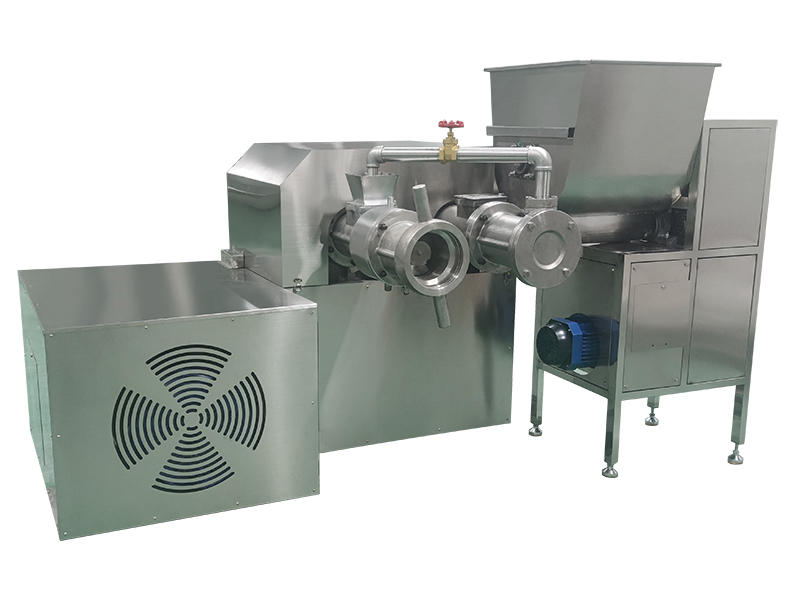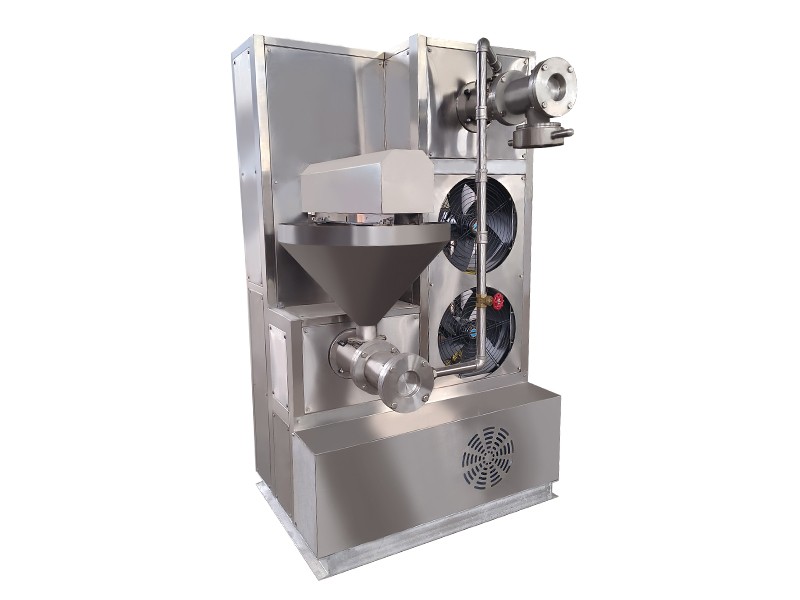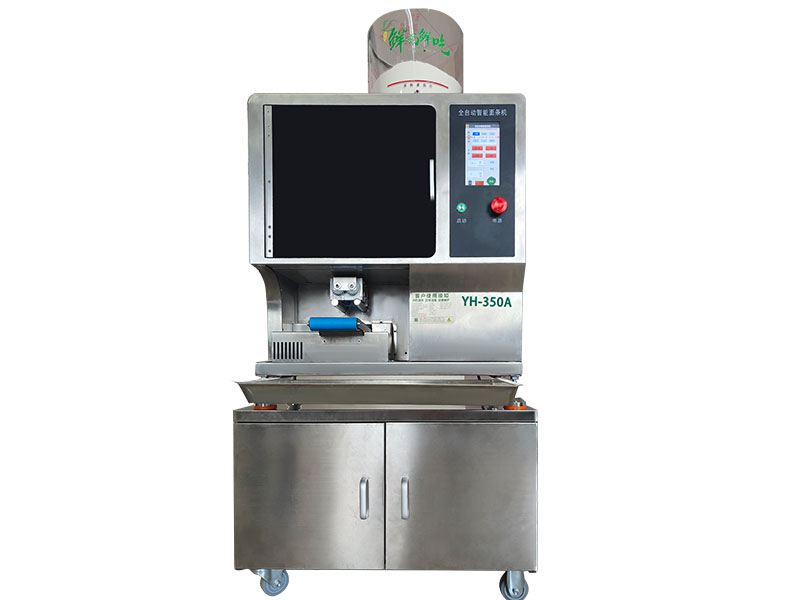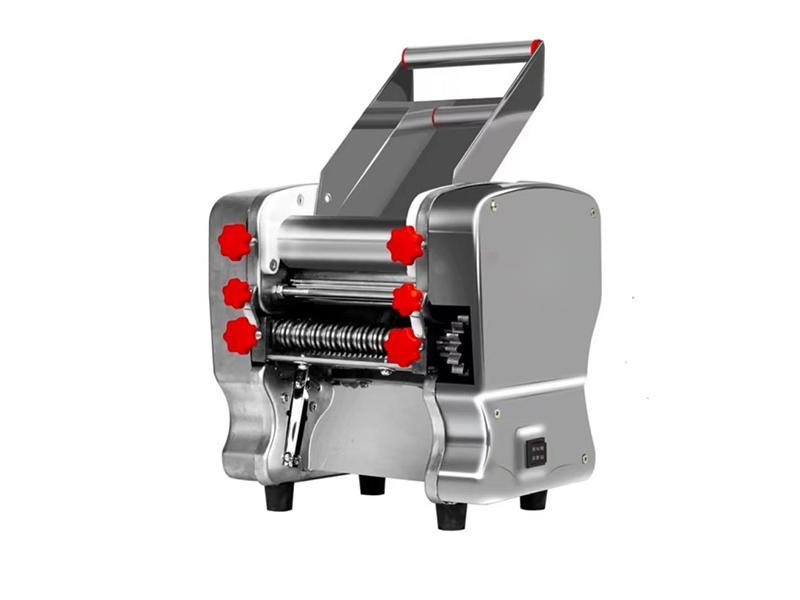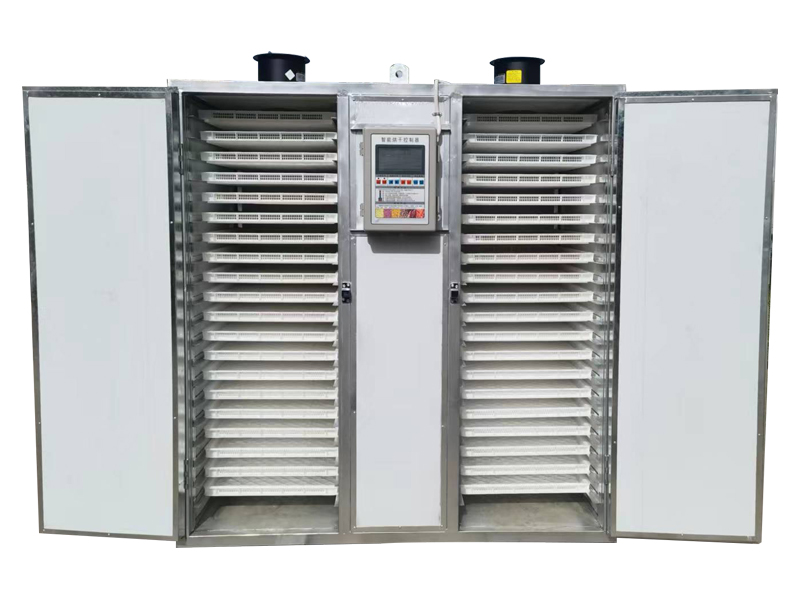
News Detail
How to Improve Rice Noodle Elasticity and Texture: Dual Optimization of Equipment and Process
Introduce
In today’s highly competitive rice noodle market, consumers demand noodles that are chewy, smooth, and unbreakable. For manufacturers, improving rice noodle elasticity and texture has become a key factor in maintaining product quality and brand reputation. Industry experts agree that the dual optimization of equipment and processing technology is the foundation for consistent and superior noodle quality.
1. Equipment Upgrades: Intelligent Production for Better Consistency
Traditional rice noodle production relies heavily on manual experience and basic machinery, making it difficult to precisely control temperature, moisture, and gelatinization. Modern automatic rice noodle production lines, however, allow each stage of production to be accurately managed and standardized.
Advanced machines precisely control steaming, gelatinization, extrusion, and cooling, ensuring that the noodles are well-cooked yet firm and elastic. Especially during extrusion and cooling, constant temperature and rapid water-locking systems prevent overcooking or drying, both of which reduce noodle elasticity.
Some upgraded lines also feature frequency conversion control and automatic water dosing systems, keeping rice slurry concentration uniform and resulting in smoother texture and stronger bite.
2. Process Optimization: Scientific Control from Formula to Gelatinization
Superior texture depends not only on machinery but also on optimized production processes. Traditionally, rice noodles are made purely from regular rice. Modern formulations, however, balance indica and glutinous rice ratios to achieve the ideal combination of chewiness and softness.
During the steaming and gelatinization stages, precise temperature and time control ensures complete starch gelatinization without breaking the molecular structure. Controlled cooling and drying—using gradual temperature-release techniques—help noodles retain their structure and elasticity.
Some advanced producers even adopt low-temperature fermentation and secondary gelatinization, using mild enzymatic reactions to restructure starch chains, thereby improving noodle rebound and smoothness.
3. Synergy Between Equipment and Process: Building a High-Quality Production System
True improvement lies in the synergy between modern equipment and optimized processes. By integrating programmable logic controllers (PLC) into production lines, parameters such as temperature, moisture, and pressure can automatically adjust according to raw material characteristics. Process engineers can then fine-tune the settings based on data feedback, enabling intelligent quality tracking and continuous optimization.
This dual optimization not only enhances noodle elasticity and mouthfeel but also improves production efficiency, reduces waste, and ensures product consistency across batches.
Conclusion
The rice noodle industry is shifting from experience-based manufacturing to data-driven production. In this transformation, companies that invest in both equipment automation and process innovation will lead the market with superior quality and stronger consumer trust.
To achieve the perfect balance of elasticity, smoothness, and durability, the future of rice noodle manufacturing lies in one principle — upgrade the equipment, refine the process, and create excellence in every strand.
Zhengzhou Yunhe Food Machinery Co., Ltd.
From material to size, from appearance to function, we can provide various products to meet your specific application needs.
Why Choose US
We are a company specializing in food machinery. We are equipped with advanced production technology and equipment, dedicated to pursuing excellence in quality and creating first-class products.
Our Advantages
Our machinery is user-friendly, with a fully automated food processing line that includes automation functions to precisely control the production process. This greatly enhances production efficiency and ensures stable output for processed food.
In terms of quality, we use high-quality 304 stainless steel, which is sturdy, durable, and has a long service life. Our machines also offer flexible parameter adjustments to meet the production needs for various food specifications and textures. Additionally, the equipment is easy to clean and strictly adheres to national safety and hygiene standards to ensure food safety.

